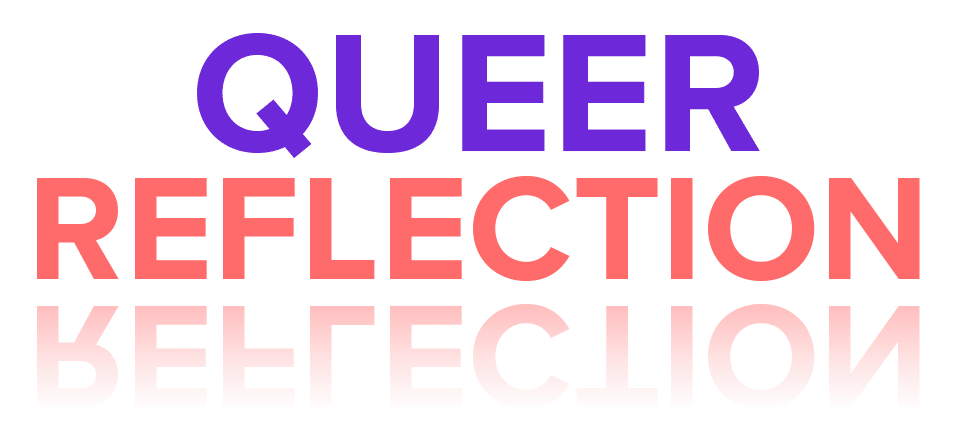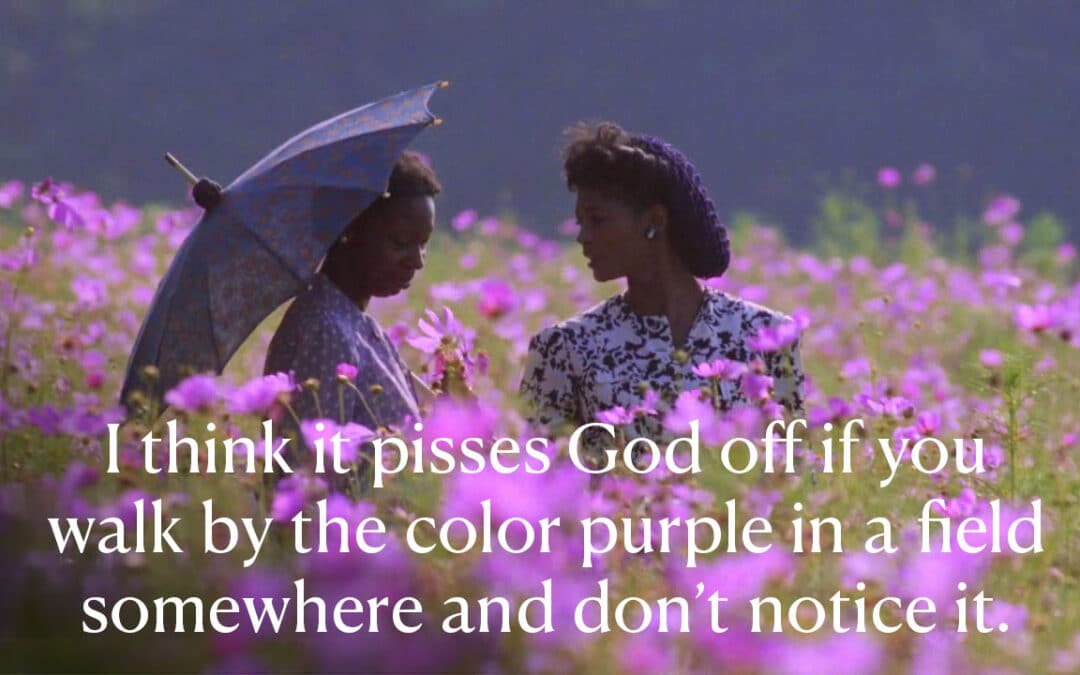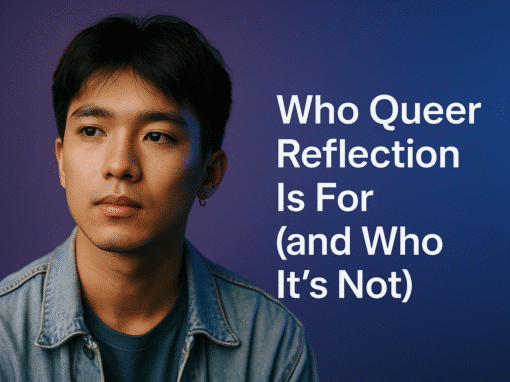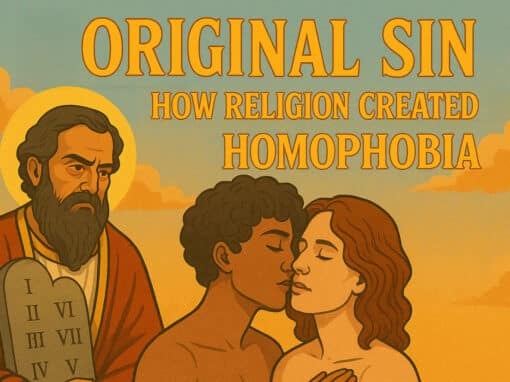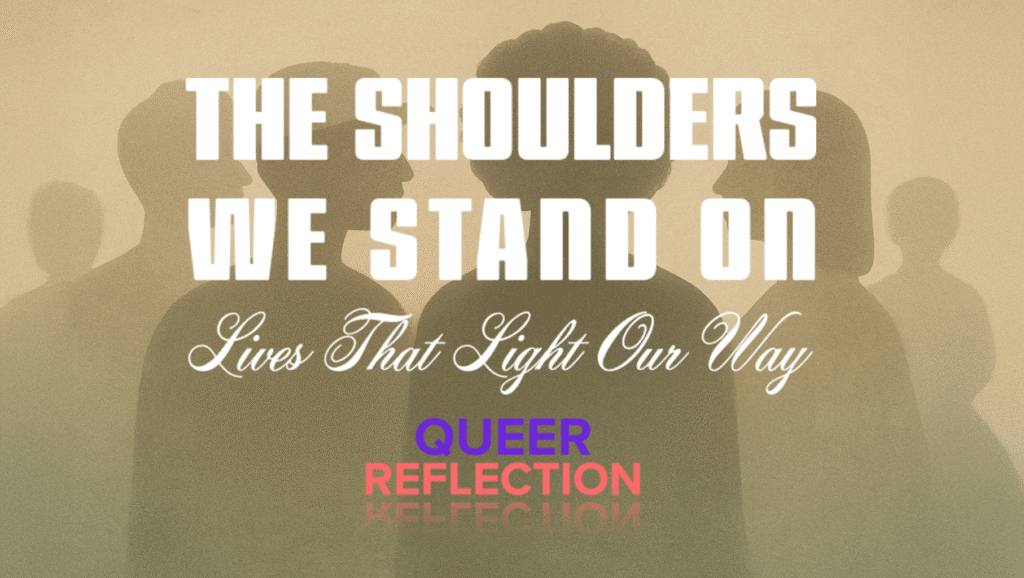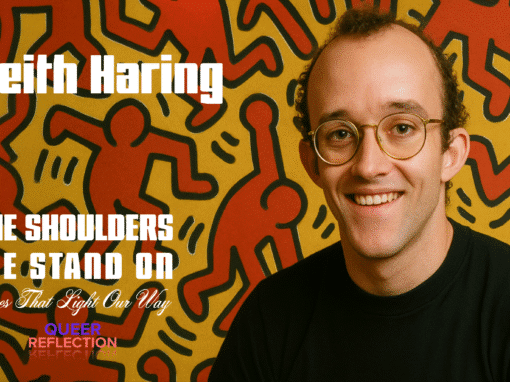I was a teenager the first time I read The Color Purple by Alice Walker. I didn’t have the language for what I was feeling at the time—not for queerness, not for shame, not for God. But I knew, instinctively, that something sacred was happening in those pages. Something forbidden. Something freeing.
Walker’s novel is a tapestry of pain and survival, but also a bold reclamation of identity, sexuality, and spiritual power. For me, it wasn’t just literature. It was permission. And in many ways, it planted the earliest seeds for what would eventually become Queer Reflection.
“I think it pisses God off if you walk by the color purple in a field somewhere and don’t notice it.”
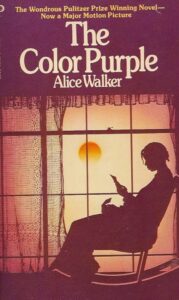
Celie’s journey—from silence to voice, from erasure to embodiment—mirrors what so many queer people experience. We are taught not to notice our own beauty. Not to believe our own feelings. Not to trust our own reflection. That kind of internal exile is violence wrapped in politeness.
What Alice Walker gave me was more than a character arc—it was a blueprint for returning to myself.
I wrote my college essay about The Color Purple. It got me into NYU.
It was the first time I told the truth on paper. I wrote about queerness, about growing up feeling unseen, about the way Celie’s voice felt like my own. I didn’t know if it was too much, too raw, too personal. But I sent it. And they said yes.
That “yes” didn’t just open a door to higher education—it validated my voice. It taught me that honesty, even in its most vulnerable form, has power.
Queer Reflection is my way of saying yes to someone else
Queer Reflection isn’t a tech project. It’s a spiritual one. It’s built on the belief that we heal through story. That we transform when we allow others to feel what we feel—not as spectacle, but as communion. I didn’t want to build a platform that “explained” queerness. I wanted to build one that let you live it, if only for a moment.
Walker’s insistence that the divine lives in beauty—in color, in love, in resilience—shaped that mission. She taught me that being queer is not a deviation from holiness, but a doorway into it. That feeling fully is its own kind of activism.
“I’m poor, Black, I may be ugly and can’t cook… but I’m here.”
Celie’s declaration of existence is, to me, one of the most radical moments in American literature. Not because it’s loud. But because it’s complete. She doesn’t beg to be seen—she declares it. That kind of declaration is what I hope Queer Reflection helps people find in themselves. That kind of rooted visibility. That refusal to vanish.
Too many queer people grow up never seeing themselves in the mirror of culture. The Color Purple held up that mirror for me. Queer Reflection is my way of holding it up for someone else.
We don’t need to be translated. We need to be felt.
That’s what Walker’s work reminds me again and again. And that’s what our platform is built to do. Because stories like Celie’s—and stories like mine, like yours—don’t just deserve to be heard. They deserve to be lived with empathy, reverence, and care.
If you’ve ever walked past your own color and kept your head down, this space is for you.
